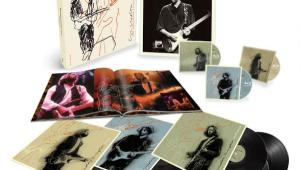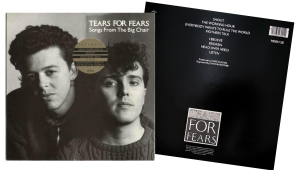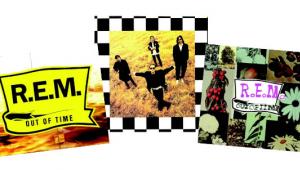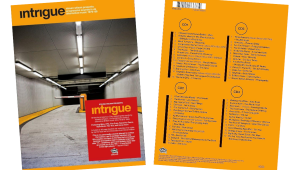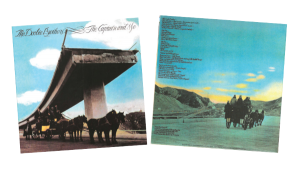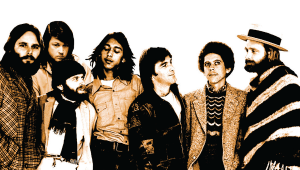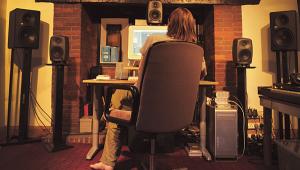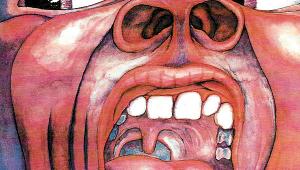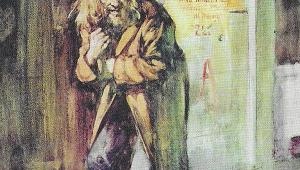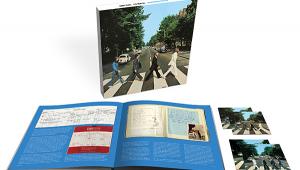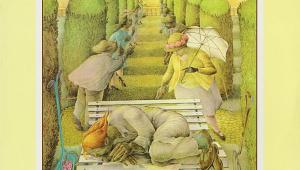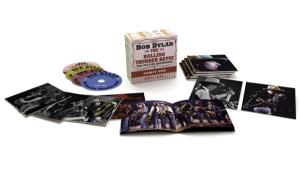Bob Dylan: Together Through Life

| Columbia Music •••• Sound •••½ |
Moreover, we continue to care about the merits of his work in truly personal ways, attaching standards and litmus tests that rarely enter the picture with any pop figure of his/our (maybe any) generation. In the meantime, Dylan simply continues to pursue his muse wherever it takes him. As such, our reactions say more about us than about him. To paraphrase what this man of many famous words famously noted in 1965: You're an artist. You don't look back.
All of which is to say that if Together Through Life strikes you as a light, almost frivolous album, that's certainly understandable. Especially since most of it sounds and feels very off-the-cuff and not duly deliberated over. The mainly plain-talking lyrics, credited to "Bob Dylan with [the Grateful Dead's] Robert Hunter," feature repeated phrases and/or images; odd words like "boulevard" and "stuff" crop up on several tunes. And many of the tracks are structured around classic blues songs. For example, "Beyond Here Lies Nothin' " channels Otis Rush's "All Your Love (I Miss Loving)," while "If You Ever Go to Houston" leans on Leadbelly's popularization of "Midnight Special." Most obvious is "My Wife's Home Town," basically a rewrite of the Muddy Waters hit "I Just Want to Make Love to You" - for which (perhaps contractually) its author, the late Willie Dixon, receives a compositional co-credit.
Then again, as in the case of Woody Guthrie's "This Land Is Your Land" (melody lifted from the Carter Family's "When the World's on Fire"), the folk/blues tradition is rife with such "appropriations." Dylan himself has drunk from that well freely over the years, going all the way back to his 1962 debut and "Song to Woody," a tune about his spiritual mentor that used Guthrie's own "1913 Massacre" as its melodic base. What these reworkings do on this album is provide reference points - important reference points - for Dylan's assorted landscapes, which have a decidedly snapshot-like quality here. Meanwhile, this is also a fairly lusty album, with those snapshots joined by numerous blues-based sketchy "portraits" of women alternately wooed ("Beyond Here Lies Nothin'," "Jolene"), wondered at ("Shake Shake Mama"), lost ("Life Is Hard"), or lamented ("Forgetful Heart").
Still, this is Bob Dylan - and you take him lightly at your own listening risk. Providing evidence of that are the two final tracks here, which in their own way reward the faithful rather handily. The penultimate tune, "I Feel a Change Comin' On," is one of those semi-inscrutable Dylan parables that sounds at once fatalistic ("Dreams never did much for me . . . even when they did come true") yet also, from the R&B/soul-styled melody to the oft repeated title, decidedly optimistic. And then there's the closing "It's All Good," which uses a rousing John Lee Hooker-ish boogie beat as a backdrop for an irony-dripping spin on Life on Earth in these troubled times:
Big politicians telling lies Restaurant kitchen full of flies . . . Widows cry, the orphans' plea Everywhere you look, there's more misery . . . Buildings are crumbling in the neighborhood But you know what they say They say it's all good, all good.
It isn't, of course - which, one might argue, is precisely the point. Be it 1963 or 2009 or whenever: A hard rain's still gonna fall, and the forever young artist named Bob Dylan never lets us forget it.
- Log in or register to post comments

